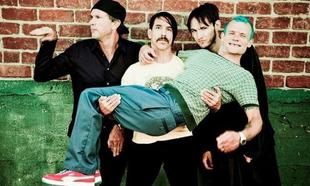Martha Wainwright's tribute to legendary French singer Edith Piaf is a well-constructed, beautifully-sung and terrifically-played affair. It drags in parts and is perhaps a little too long, but overall, is a rewarding listen.
Anything big bro can do, I can do better; maybe that's the thought that was bouncing around Martha Wainwright's head when she decided to record a tribute to legendary French chanteuse Edith Piaf. After all, Rufus's Judy Garland show had been a resounding success - why not make a similar fist at Mme. Piaf's back catalogue?
Or maybe family had nothing to do with it; both Wainwright siblings have long suffered from comparisons to each other and their parents. Perhaps the project was borne from a simple desire to pay homage to one of her heroes. She does an impressive job, too; although this album was recorded live over three nights in New York earlier this year, the sound quality is as good as you'd hear in a studio, for starters. The arrangements of Piaf's songs are also handled with delicacy; a gentle trumpet parp here, a flourish of accordion there. And that's before mentioning Wainwright's own performances on songs like 'Le Brun et La Blonde' or 'Le Chant d'Amour', which she handles superbly and with just the right amounts of pathos and humour.
There's no cover of 'Je Ne Regrette Rien', thankfully; although it may be Piaf's best-known song, it usually serves only to detract from the rest of her back catalogue. Songs like 'C'est à Hambourg' and 'Soudain Une Valee' are much more enriching listening experiences, especially when coupled with Wainwright's gorgeous nasal thrum, while the brilliant 'Les Grognards', a song about the French Imperial Guard, is suitably tense and Napoleonic.
If there's one criticism of 'Sans Fusils, Ni Souliers, à Paris', it's that even Wainwright can't maintain the momentum of fifteen rather intense songs and keep her listeners on tenterhooks all the way through. In short-to-medium bursts, though, it's a rewarding and enjoyable listen.









































































